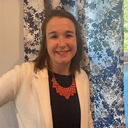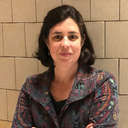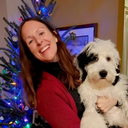The Graduate Reading Exchange
In Person; Mar. 7-Mar. 9
Facilitation Team:
 |
 |
 |
 |
|---|---|---|---|
| Carolyne King | Lizzie Hutton | Michelle Sprouse | Emily Sok |
Abstract: As graduate students acclimate to highly specialized disciplinary practices, they need to develop an array of equally specialized ways of reading (Geisler; Haas and Flower). Yet, graduate students often gain these skills more through happenstance than through direct instruction or metacognitive attention. The Graduate Reading Exchange—a collaborative, digital website—will support graduate students and instructors of graduate readers, by making perceivable the processes and practices graduate students use to engage texts and to wrestle with their acclimatization to disciplinary literacy. The website has 3 parts: an exploration of disciplinary challenges (and suggested readings); an archive of process narratives to materialize reading practices; and a toolkit of practical resources, activities, and assignments. Published as a team-authored website, we invite participants from any discipline to contribute by providing their own experiences as readers, developing resources, and by offering feedback and critical thinking on emerging ideas and materials.
What Draft Deliverable will be Presented at the Conference Showcase? Our final day deliverable will be a collection of resources and final drafts for webpages on The Graduate Reading Exchange website. We also will share a plan for how these drafts will be posted onto the website, including how author attribution will be given. These resources will be collected in a shared google drive. Most generally, these resources will contribute to three categories:
- A description of the challenges of specialized disciplinary (graduate level) reading, which will consolidate key scholarship and personal experiences of the participants, and an overview of our project’s mission;
- A collection of reading process narratives, accompanied by a guide for how future readers of the website can create their own reading process narratives and submit them for possible inclusion;
- A toolkit for supporting graduate reading, including heuristics for creating reading guides, scaffolding social annotation projects, developing pre semester reading surveys, and implementing reading progress logs.
Who Should Apply to Participate? Ideally, we will attract a range of participants, but all who share an interest in learning more about reading and themselves as readers. We are interested in participants from a range of disciplinary backgrounds in addition to rhetoric/composition/writing studies (especially education and social sciences). Because participants will be asked to reflect on their own (current or previous) graduate training and literacy acquisition, we desire participants from a range of institutional types, social classes, and language backgrounds to represent as many identity positions as possible (and that they are comfortable describing or sharing). Participants are not required to bring extensive knowledge about reading scholarship to this collaboration, although they should have interest in learning more about this topic. Participants will be given the opportunity to explore together some of the fundamental concepts of advanced reading, and to create resources in small groups that consolidate this new knowledge with their own interests in and pedagogical commitments to supporting graduate students more generally as learners.
We are particularly interested in participants (graduate students or instructors) who identify in their research interests as reading scholars or as reading/literacy specialists. These interests, especially, might be represented in participants from various disciplinary backgrounds, from rhet/comp, tech-comm, and education especially. We would also like to prioritize faculty who work with graduate students (broadly defined) and current graduate students. For faculty, this could include working with graduate students in administrative roles, in traditional graduate seminars, or through the writing center or faculty/teaching groups, or writing center practitioners. For graduate students, we hope to gather students at various points in their educational journeys (from first year MA to final semester and defending in the PhD) and whose research interests span the discipline. That said, we are also seeking participants with a strong interest in collaborating on open-source resources that will be made available in digital form. This means participants should enjoy working with colleagues by sharing and developing new ideas, perspectives, and resources. Additionally, participants should enjoy working with people from a range of backgrounds and should be interested in creating final products that will be accessible to a wide audience, both in terms of formatting and prose style. All this said, prior experience designing digital resources and/or Google Docs/WordPress is not needed to participate.
What Do Participants Need to Prepare? [Note: The facilitation team will email all materials and instructions once all participants have been selected]
Prior to the start of the conference, participants will be asked to complete about 2 hours of work (reading plus personal reflection). This project uses a collaborative google drive, and participants will be asked to complete some brief reflections on their personal interests and experiences, and to post this a week before the conference (thus allowing participants to review each other’s submission and begin by “virtually greeting” each other. The facilitators will also share the “shell” of the website so that collaborators can begin to envision what the final project will look like as they prepare.
What Happens After the Conference? The facilitators will take the role of editor-designers of the website after the conference is over and final drafts of the resources are created. Facilitators will vet and edit all possible postings according to the shared style guide that will be developed during the conference. Facilitators will post the created, edited resources once final edits have been made. Participants will have the option, but are not obliged, to continue to collaborate on these resources, on editing, or on website design after the conference. Either way, participants will get credit on the website as contributing authors to the website.
It is also the facilitators' hope that this website will continue to grow in years to come, as visitors to the website will be encouraged to submit their own process narratives and further resources for possible (but not guaranteed) inclusion in the website.To this end, the website will include a place that describes how to contribute and the project’s email address (monitored by facilitators).
